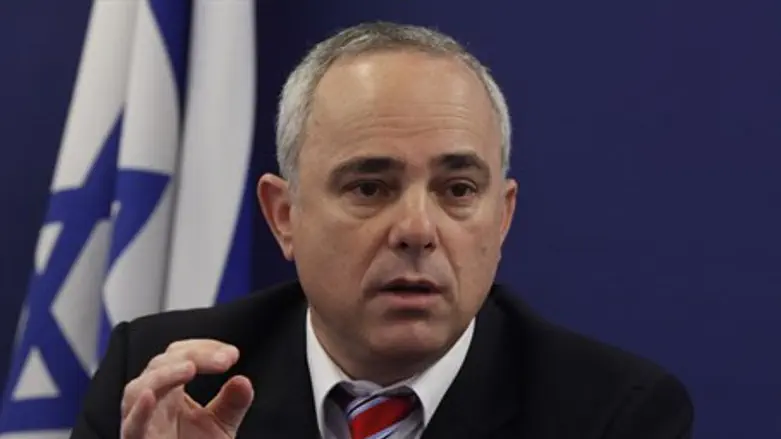
Minister of Intelligence and International Relations Yuval Steinitz said on Thursday said there were "small differences" with the United States over the Iranian nuclear issue, AFP reported.
"We generally see eye to eye with the Americans on the final objective, which is to prevent Iran from getting a nuclear weapon, but there are sometimes small differences over the way to do that," Steinitz told Kol Yisrael radio during a visit to the U.S. for discussions on Iran.
He did not elaborate, but added that sanctions against Tehran must not be relaxed until there is "an agreement guaranteeing 100 percent that Iran will never be able to have a nuclear weapon".
Last week, Iranian negotiators met with representatives of the so-called P5+1 - the United States, China, Russia, France, Britain and Germany.
During the two-day session in Geneva, the first round of talks between the sides since the election of President Hassan Rouhani, Iran presented what it described as a breakthrough proposal that would include snap inspections of its atomic sites.
Israel has repeatedly warned against the so-called charm offensive of Iran's Rouhani, who since being elected has been reaching out to the West, unlike his predecessor Mahmoud Ahmadinejad.
Western countries, along with Israel, suspect Iran's nuclear activities are aimed at military objectives, a claim Tehran vehemently denies.
Steinitz told Kol Yisrael that Israel does not oppose Iran's right to civilian nuclear energy, but insisted it must not be able to enrich its own uranium, which is required for nuclear fuel but can also be used to develop a warhead.
Prime Minister Binyamin Netanyahu has been driving home the same message during recent meetings with world leaders.
The Prime Minister has been pointing out that if Iran really wanted only civilian nuclear energy, it would not require centrifuges and plutonium, which are used for the purpose of making a nuclear bomb.
Netanyahu has pointed out that there are many nations in Europe, North America, and Asia that have nuclear energy without centrifuges or plutonium.
Ahead of talks in Rome with Netanyahu on Wednesday, U.S. Secretary of State John Kerry said "words are no substitute for actions" on the Iran nuclear issue, adding that it was too early to talk about easing sanctions on the country.
At the same time he hailed the recent signs of openness in Iran following Rouhani's election and said the country should now respect the same rules as other nuclear powers.

